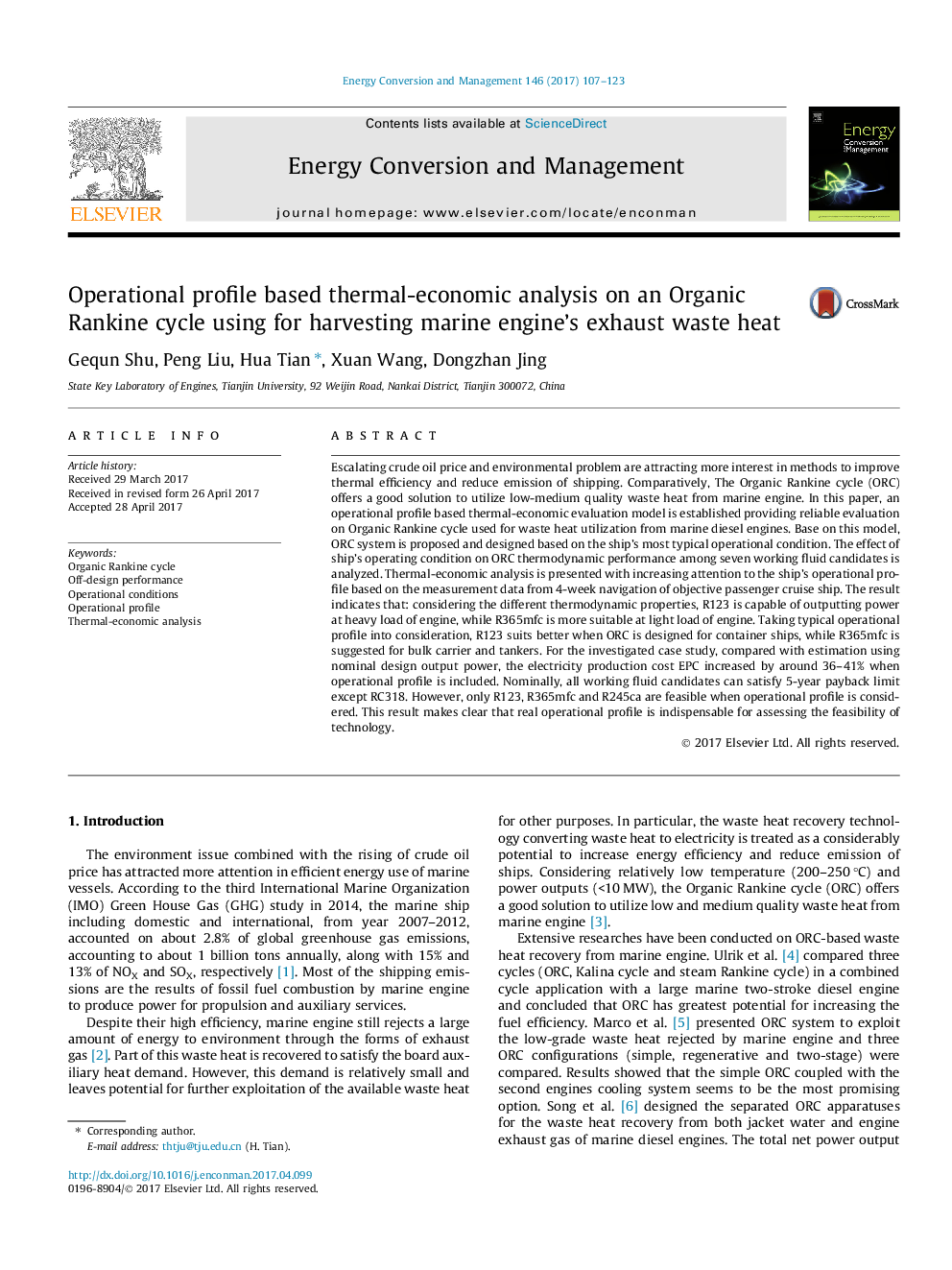| Article ID | Journal | Published Year | Pages | File Type |
|---|---|---|---|---|
| 5012493 | Energy Conversion and Management | 2017 | 17 Pages |
Abstract
Escalating crude oil price and environmental problem are attracting more interest in methods to improve thermal efficiency and reduce emission of shipping. Comparatively, The Organic Rankine cycle (ORC) offers a good solution to utilize low-medium quality waste heat from marine engine. In this paper, an operational profile based thermal-economic evaluation model is established providing reliable evaluation on Organic Rankine cycle used for waste heat utilization from marine diesel engines. Base on this model, ORC system is proposed and designed based on the ship's most typical operational condition. The effect of ship's operating condition on ORC thermodynamic performance among seven working fluid candidates is analyzed. Thermal-economic analysis is presented with increasing attention to the ship's operational profile based on the measurement data from 4-week navigation of objective passenger cruise ship. The result indicates that: considering the different thermodynamic properties, R123 is capable of outputting power at heavy load of engine, while R365mfc is more suitable at light load of engine. Taking typical operational profile into consideration, R123 suits better when ORC is designed for container ships, while R365mfc is suggested for bulk carrier and tankers. For the investigated case study, compared with estimation using nominal design output power, the electricity production cost EPC increased by around 36-41% when operational profile is included. Nominally, all working fluid candidates can satisfy 5-year payback limit except RC318. However, only R123, R365mfc and R245ca are feasible when operational profile is considered. This result makes clear that real operational profile is indispensable for assessing the feasibility of technology.
Related Topics
Physical Sciences and Engineering
Energy
Energy (General)
Authors
Gequn Shu, Peng Liu, Hua Tian, Xuan Wang, Dongzhan Jing,
